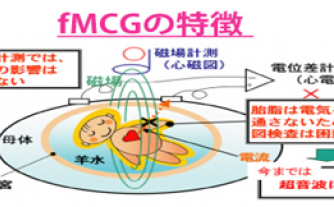show advanced search
-
1-4 / 4
- display number
-
order by date
-
order by researcher's name
-
order by affiliation
2011-0517-04
Life sciences
posted:2014/05/21
Comparison of a murine model with humans using noninvasive measuring of biomagnetism, and its application in brain disease diagnosis
ISHIYAMA, Atsushi Professor (Faculty of Science and Engineering School of Advanced Science and Engineering) (retired)
SQUID (superconducting quantum interference device), which is a high sensitivity magnetic sensor, is able to measure weak magnetic fields (magnetoencephalographs) generated by neurotransmissions (brain activity) without being obstructed by the skull. For example, using SQUID t...
2011-0517-03
Life sciences
posted:2014/05/21
Comparison of a murine model with humans using noninvasive measuring of biomagnetism, and its application in heart disease diagnosis
ISHIYAMA, Atsushi Professor (Faculty of Science and Engineering School of Advanced Science and Engineering) (retired)
We can provide a method of early heart disease detection that combines life science techniques with SQUID* measurements.For example, we can create a murine model of myocardial infarction (a knockout mouse), and take magnetocardiographs using SQUID from birth until the onset of...
2011-0517-02
Life sciences
posted:2014/05/21
Visualization of the brain’s response to stimuli (smell) in a murine model using noninvasive measuring of biomagnetism
ISHIYAMA, Atsushi Professor (Faculty of Science and Engineering School of Advanced Science and Engineering) (retired)
The SQUID (superconducting quantum interference device), which is a high sensitivity magnetic sensor, is able to measure subtle magnetic fields (magnetoencephalographs) created by nervous activity, and it is not hindered by the skull. This allows the accurate and individual tr...
2011-0517-01
Life sciences
posted:2014/05/21
Investigation of prenatal care through noninvasive diagnosis and analysis
ISHIYAMA, Atsushi Professor (Faculty of Science and Engineering School of Advanced Science and Engineering) (retired)
Using a SQUID (superconducting quantum interference device), which is a high sensitivity magnetic sensor, to diagnose and analyze the mother’s electrocardiograph can shed light on the level of relaxation or stress in the fetus through correlation between the mother and the fet...


